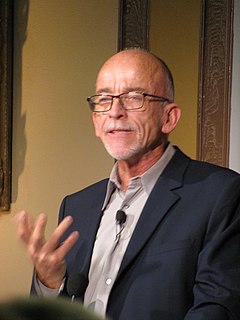A Quote by Sharon Olds
If I wrote in a sonnet form, I would be distorting. Or if I had some great new idea for line breaks and I used it in a poem, but it's really not right for that poem, but I wanted it, that would be distorting.
Related Quotes
It was early on in 1965 when I wrote some of my first poems. I sent a poem to 'Harper's' magazine because they paid a dollar a line. I had an eighteen-line poem, and just as I was putting it into the envelope, I stopped and decided to make it a thirty-six-line poem. It seemed like the poem came back the next day: no letter, nothing.
The subject of the poem usually dictates the rhythm or the rhyme and its form. Sometimes, when you finish the poem and you think the poem is finished, the poem says, "You're not finished with me yet," and you have to go back and revise, and you may have another poem altogether. It has its own life to live.
It's unsettling, to lose the safety of the familiar, even when what's disrupted is an ordinary routine. When I began this poem, I was grieving for the loss of my old barbershop in Manhattan, and wondering at the strangeness of my new one. I didn't have any idea the poem would break into the underworld, opening a deeper subject: the continuing force of the old griefs routine helps to mediate, and my strange, sheer wonder at my own survival. Where's home now? In the contingent present, in which anything can disappear, and where we're sometimes granted some form of grace.
Poetry is perhaps the oldest art form. We can go back to an age-old idea of naming things, the Adamic impulse - to give something a name has always been an immensely powerful thing. To name something is to own it, to capture it. A poem is still a kind of spell, an incantation. Historically, a poem also invoked: it was a blessing, or a curse, or a charm. It had a motile power, was able to summon something into being. A poem is a special kind of speech-act. In a good poem there's the trance-like effect of language in its most concentrated, naked form.
One of the things that was really influential early on was Ezra Pound's Cantos, one poem he worked on for 50 years. It's epic. I had a great deal of difficulty understanding it. One of the problems was you'd be reading along in English and he would move to a Chinese ideogram or French-he actually used seven different languages in a given poem. And for somebody who's not fluent in different languages it has the impact of rupturing your way of understanding something.
Had drugs been decriminalized, crack would never have been invented and there would today be fewer addicts... The ghettos would not be drug-and-crime-infested no-man's lands... Colombia, Bolivia and Peru would not be suffering from narco-terror, and we would not be distorting our foreign policy because of it.
I had a dream, in 1985, I believe, when a friend I'd gone to school with was sick - one of the first people I knew who'd gotten the AIDS virus. I had a dream of him in his bedroom with an angel crashing through the ceiling. I wrote a poem called 'Angels in America.' I've never looked at the poem since the day I wrote it.
For me, form is something I locate in the process of writing the poems. What I mean is, I start scribbling, and then try to form the poem - on a typewriter or on my computer - and, by trial and error, try to find the right shape. I just try to keep forming the poem in different ways until it feels right to me.




































